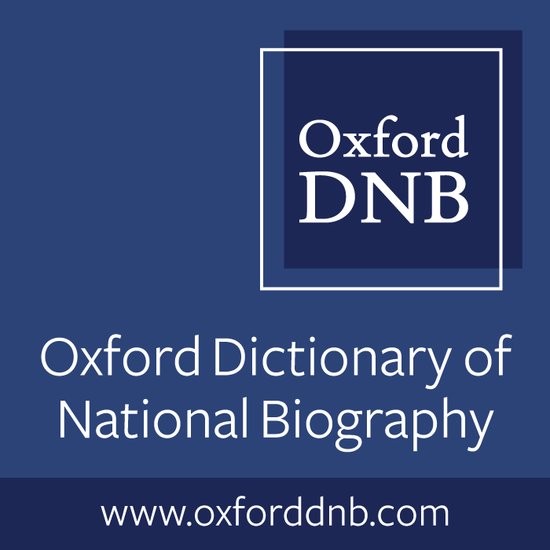Did you know that March is Women’s History Month? In the Oxford Dictionary of National Biography you’ll currently find biographies of 6340 women who’ve shaped British history and culture between the 1st and 21st century — making it one of the most extensive accounts of women’s contribution to national life. Viewed in the round, the Dictionary’s coverage reflects changing experiences and opportunities across 2000 years of British history.
Who are these women? First, of course, there are many whose historical importance derived from their inherited social status. Fittingly, the ODNB’s earliest women subjects — Boudicca and Cartimandua — were 1st-century queens of the Iceni and Brigantes respectively. They are followed by a further 500 queens, consorts, and members of royal families, culminating with ‘modern’ royals such as Diana, princess of Wales.
Then there are the pioneers: the first woman to be elected to the House of Commons, for example, or the first to sit in the chamber; the first woman to hold public office in the UK, or the first to practice as a barrister. As well as embodying change, many of these women were also campaigners for equality in the franchise, professional opportunities, and civil liberties. The Oxford DNB includes biographies of more than 350 women who are principally remembered as campaigners for women’s rights. Though the earliest date from the 1700s (most notably, Mary Wollstonecraft), the greatest number were associated with late 19th and early 20th-century networks — of which the ‘suffragists’ and ‘suffragettes’ are the best known. They include leaders such as Millicent Garratt Fawcett and Emmeline Pankhurst, as well as activists like the Manchester campaigner, Flora Dummond, or the ‘suffragette martyr’, Emily Wilding Davison, the centenary of whose death will be marked this June.
Twentieth-century reforms created new opportunities that are also reflected in the Oxford DNB’s coverage of women in the modern period. Most eighteenth-century women in the ODNB are included for their contribution to literature, education, religious practice or the stage. However, by the mid-twentieth century the picture was changing, albeit gradually. Though the arts remain important, a significant—and ever growing—number of women now gain their place in the ODNB as national leaders in science, medicine, the law, and business. In these four fields the Dictionary offers biographies of nearly 500 women active in post-war Britain, from the crystallographer and Nobel laureate, Dorothy Hodgkin, to the Body Shop founder Anita Roddick.
Many of these women are familiar names you’d expect to find in the Oxford DNB. But there’s another kind of ODNB biography that’s also worth mentioning. In recent years, women’s history has developed to concentrate as much on shared experiences as remarkable individuals. The ODNB’s coverage has likewise shifted to reflect these new interests and to provide first-time biographies of women who, until recently, were often missing from the historical record. Recently added biographies of this kind include Agnes Cowper whose ordeal as vagrant in seventeenth-century London provides a remarkable insight into the everyday experience of labouring women, now drawn on by social historians. Or Gwyneth Bebb (1889-1921), one of the first campaigners for women’s participation in the legal profession who, until recently, had been all but forgotten due to her early death in childbirth—months before she was due to become the first woman called to the English bar. Not all ‘rediscovered’ biographies are those lived on the social margins or dedicated to progressive reform, of course. Two days after International Women’s Day, Britain will mark Mothering Sunday. Seemingly a long-established tradition, Mothering Sunday is, in fact, a 20th-century recreation, devised and promoted by a Nottingham clerical worker, Constance Penswick Smith — one of the newest additions to the Oxford DNB.
In addition to the biographies above, the lives of Diana, princess of Wales; the political pioneers Constance Markiewicz and Nancy Astor; the suffragette Emily Wilding Davison; the businesswoman Anita Roddick; and Constance Penswick Smith, reviver of Mothering Sunday, are also available as episodes in the Oxford DNB’s free biography podcast series.
To celebrate Women’s History Month, it’s now time for a quiz…
[slickquiz id=13]
The Oxford Dictionary of National Biography is the national record of men and women who have shaped British history and culture, worldwide, from the Romans to the 21st century. In addition to 58,500 life stories, the ODNB offers a free, twice monthly biography podcast with over 175 life stories now available. You can also sign up for Life of the Day, a topical biography delivered to your inbox, or follow @odnb on Twitter for people in the news. The Oxford DNB is freely available via public libraries across the UK. Libraries offer ‘remote access’ allowing members to log-on to the complete dictionary, for free, from home (or any other computer) twenty-four hours a day.
The landmark American National Biography offers portraits of more than 18,700 men & women — from all eras and walks of life — whose lives have shaped the nation. The American National Biography is the first biographical resource of this scope to be published in more than sixty years.
Subscribe to the OUPblog via email or RSS.
Subscribe to only history articles on the OUPblog via email or RSS.



[…] [Oxford University Press] […]